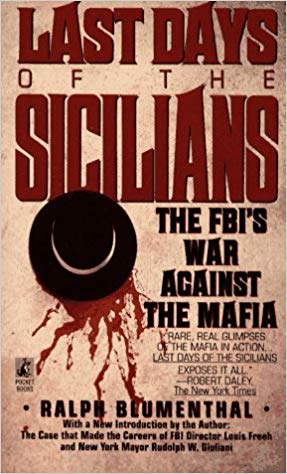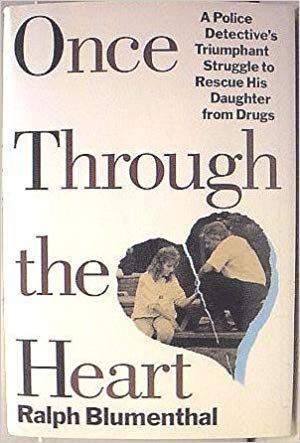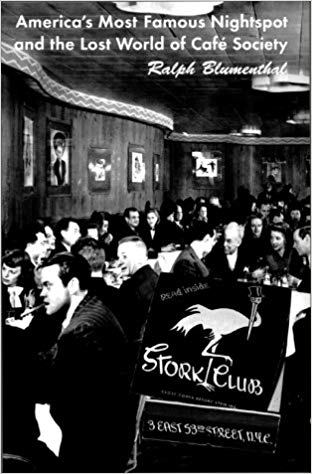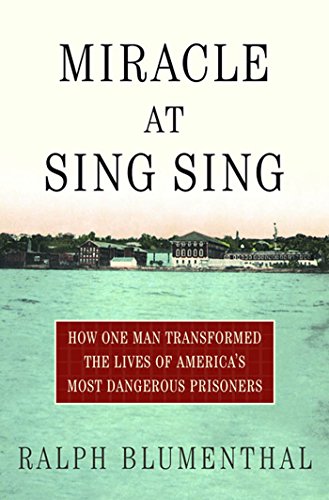Background
Ralph Blumenthal was born on November 7, 1941, in the United States.

Preet Bharara and Ralph Blumenthal
Ralph Blumenthal in his office at Baruch College
160 Convent Ave, New York, NY 10031, United States
In 1963, Blumenthal received a Bachelor of Science from City College of New York.
2950 Broadway, New York, NY 10027, United States
Blumenthal received a Master of Science from Columbia University Graduate School of Journalism in 1964.







(An award-winning journalist recounts the suspense- and da...)
An award-winning journalist recounts the suspense- and danger-filled Pizza Connection Case, which involved Mafia killings, secret meetings, stakeouts, billions of dollars in heroin, and a six-year FBI investigation.
https://www.amazon.com/Last-Days-Sicilians-Ralph-Blumenthal/dp/0671682776/ref=sr_1_1?keywords=Last+Days+of+the+Sicilians%3A+At+War+with+the+Mafia%3A+The+FBI+Assault+on+the+Pizza+Connection&qid=1576580197&sr=8-1
1988

(An undercover narcotics cop tells how he caught his own d...)
An undercover narcotics cop tells how he caught his own daughter selling drugs and how his shattered family faced the crisis and came out stronger in the end.
https://www.amazon.com/gp/product/0671707507/ref=dbs_a_def_rwt_hsch_vapi_taft_p1_i3
1992

(In a companion to the exhibition at the New York Historic...)
In a companion to the exhibition at the New York Historical Society, an inside story of the Stork Club, one of New York's most glamorous clubs reveals its hidden underworld connections, from its founding during the speakeasy era through the height of its popularity in the 1960s.
https://www.amazon.com/gp/product/0316105317/ref=dbs_a_def_rwt_hsch_vapi_taft_p1_i0
2000

(From the riotous days of Prohibition and the Jazz Age to ...)
From the riotous days of Prohibition and the Jazz Age to the brutal awakening of Pearl Harbor, one man ruled the fate of America's most dangerous criminals. He was Lewis E. Lawes, warden of Sing Sing prison, the Big House up the river, who believed that no man was beyond redemption. Warden Lawes couldn't banish the electric chair (though he tried) but he knew that humanitarian care and good morale provided better security than the stoutest walls.
https://www.amazon.com/gp/product/B008S0JVEU/ref=dbs_a_def_rwt_hsch_vapi_taft_p1_i2
2004
Ralph Blumenthal was born on November 7, 1941, in the United States.
In 1963, Blumenthal received a Bachelor of Science from City College of New York, and a Master of Science from Columbia University Graduate School of Journalism in 1964.
In June 1964, Ralph joined The New York Times as a news clerk. Within months, he was promoted to the metro staff. In 1968 Blumenthal was named a foreign correspondent - at 26, the youngest in many years - in the Bonn Bureau where he covered the Soviet invasion of Czechoslovakia, the rise of neo-Nazism and the West German economic miracle.
The following year the Times sent him to Saigon to cover the war and what became the spread of fighting to Cambodia. Assigned back to New York in 1971, Ralph became an investigative reporter specializing in stories about foreign and American corruption and organized crime. His series on Nazi war criminals hiding in America helped pass a Congressional bill to bar persecutors from entering the country, the Holtzman Amendment. Blumenthal was the American reporter who first got the tip on Kurt Waldheim's secret Nazi past.
Another series, on corrupt dealings and cocaine use by Brooklyn Representative Fred Richmond, led to the Congressman's guilty plea and resignation from the House. Ralph's articles on questionable financial dealings by the 1984 Democratic Vice Presidential nominee, Geraldine Ferraro, and her husband, John Zaccaro, became a factor in the election. In 1987 Ralph led the Times team that exposed the Tawana Brawley racial hoax and produced the series (and later a book, Outrage) nominated for the Pulitzer Prize. In 1988, Last Days of the Sicilians, his first book, on the FBI's Pizza Connection drug case was published, and Ralph was invited to the annual retreat of the judges of the United States Court of Appeals for the Second Circuit to speak on electronic eavesdropping. In 1993, Ralph led the team covering the World Trade Center bombing. The following year, he co-authored another series on the fatal crashes of USAir.
In 1994, looking for a change of pace, Ralph joined the culture news department as an arts reporter. After September 11, 2001, he briefly rejoined the investigative team covering terrorism. Meanwhile, he wrote two other non-fiction books: Once Through the Heart, on a police narcotics detective's struggle to rescue his own daughter from drugs, and Stork Club, a history of the Stork Club, its renegade owner and the nightclub and gangster era in Gotham. The book became the focus of an exhibit, "Stork Club," at the New York Historical Society, which Ralph curated and which ran from May-October, 2000. Blumenthal's fifth book, Miracle at Sing was published in June 2004. In 2003, Blumenthal went to Texas to cover the Southwest where he investigated death penalty cases, President George W. Bush’s military record, and the polygamist cult. Upon his return to the Metro staff in 2008, he wrote news features and blogged on city issues.
In late 2009, Blumenthal took a buyout from his longstanding staff role at the leading American daily to pursue other interests. He chose to teach at Baruch College as a distinguished lecturer in its Department of Journalism and the Writing Professions. Since joining Baruch, Blumenthal has also taught basic journalism courses in the Weissman School of Arts and Sciences and introductory public administration courses in the School of Public Affairs.
Ralph Blumenthal, a prize-winning cultural reporter for the New York Times, has covered many important news events nationwide and overseas since he began his journalistic career in the mid-1960s. He headed a team which won the Times a Pulitzer Prize for its coverage of the 1993 World Trade Center bombing and was also involved in reporting the hoax surrounding the Tawana Brawley case. He reported from Sao Paulo, Brazil, on the discovery of the alleged remains of Auschwitz "Angel of Death" Josef Mengele, and has filed exclusive stories on such subjects as the finances of former vice presidential candidate Geraldine Ferraro and her husband, John Zaccaro.
In 2001, Blumenthal was named a Fellow of the John Simon Guggenheim Memorial Foundation to research the progressive career and penal reforms of Warden Lewis E. Lawes, "the man who made Sing Sing sing." He also received the prestigious Columbia University Graduate School of Journalism Alumni Award (2001), and the Worth Bingham Prize for distinguished investigative reporting, 1994. He was inducted into the C.C.N.Y. Communications Alumni Hall of Fame in May 2010.
(In a companion to the exhibition at the New York Historic...)
2000(An award-winning journalist recounts the suspense- and da...)
1988(An undercover narcotics cop tells how he caught his own d...)
1992(From the riotous days of Prohibition and the Jazz Age to ...)
2004Quotations: "When I tell students how I started in journalism, it sounds like I’m talking about the dark ages. Electronics have made our jobs much easier. It’s made everybody into potential journalists. That’s a double-edged sword: you’re getting a lot more input, it’s much more democratic, but it’s much harder to sort through. The idea of having the whole universe at your fingertips every time you sit down to write a story... how could you not love that as a journalist? It’s brought tremendous possibilities, and very exciting ones. You have to wonder, Where could it possibly go next?"
Blumenthal's passions include the outdoors, automobiles, and history, particularly World War II, which he wrote about extensively for The New York Times.
Blumenthal is married to Deborah Blumenthal, a nutritionist and freelance writer. They have two daughters.
